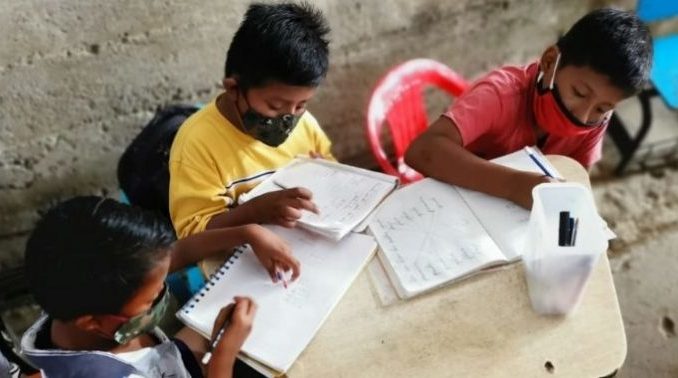
A recent UNICEF survey found that, currently in Ecuador, eight out of ten households with children have seen their income reduced and are experiencing greater difficulty in accessing nutritious food.
According to the organization’s report, this phenomenon worsened since the beginning of the pandemic in the country, in March 2020.
Faced with this problem, the UNICEF Regional Director for Latin America and the Caribbean, Jean Gough, considered it urgent “that the households hardest hit by the crisis receive protection and that children and their families be the center of recovery strategies ”.
“The pandemic has pushed us back. Poverty, inequality and unemployment have increased at an unprecedented rate in Latin America and the Caribbean, making us the region hardest hit by the pandemic and its consequences, ”she emphasized.
The crisis is reflected in the interruption of essential health services, which particularly affect children under 5 years of age. The survey data indicate that 14% of households have not followed the childhood vaccination schedule, due to the lack of vaccines.
Likewise, in Ecuador only 4 out of 10 households with girls and boys under the age of 5 access child development services or initial education.
On the other hand, 9 out of 10 households with children and adolescents from the lowest stratum can only access education through a cell phone. While in 7 out of 10 households of the high socioeconomic level they study through a computer.
On the same educational issue, 5 out of 10 households, especially in rural areas, need to have internet or improve the quality of the connection, to continue with distance education.
Unicef called on the Ecuadorian State to implement economic and social policies that promote equitable growth, so that families can get out of poverty.
Assuming an annual increase of 2 percent in household income, it would take 11 years for families with children and adolescents to get out of poverty; this will take 3 times longer than for households without children.
«The response of the State, through quality and free public services, that have permanent financing and the necessary personnel, is key to correcting the asymmetries deepened by the crisis among the most affected families and thus taking care of the human capital that streamlines the post-COVID19 recovery ”, dictates the report.

Be the first to comment